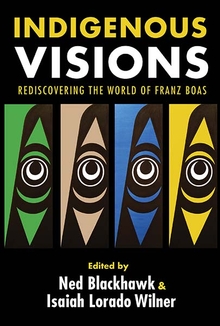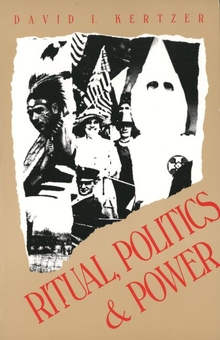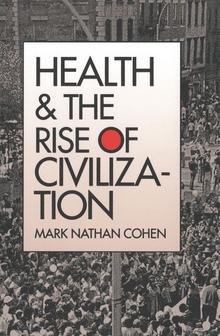Culture of Intolerance
WARNING
You are viewing an older version of the Yalebooks website. Please visit out new website with more updated information and a better user experience: https://www.yalebooks.com
Chauvinism, Class, and Racism in the United States
Mark Nathan Cohen
Out of Print
By summarizing scientific evidence proving that "races" do not exist and that few biological traits actually correlate with the color of one’s skin, Cohen shows that differences in ability cannot be linked to "race." The growing gap between rich and poor and the economic subordination of minority groups, he says, are rooted in the arbitrary rules that govern American society. Culture constrains our ability to understand and appreciate the actions of others and often prevents us from seeing the consequences of our own actions or realizing our alternatives. American perceptions of what constitute merit, health, hygiene, freedom, progress, property, economics, justice—and even our own history—are distorted. Our insistence that ours is the best or only view promotes intolerance and racism. Cohen shows that definitions of intelligence, IQ tests, hiring practices, and evaluations of job performance contain many more cultural biases than we recognize and thus restrict the opportunities of minority individuals.
By breaking down American cultural assumptions, Cohen offers a strong defense of affirmative action and multicultural education. He concludes with some suggestions for the future—to end the racism and indifference to one another that mark our society.
"Summarizing current research with wit and insight, Cohen shows how ideological conservatism now dominant hides the harsh underlying realities of US society. . . . The nation would be a better place if all general readers and college undergraduates, as well as the nation's leaders, took Cohen's proposals for change seriously."—Choice
"Cohen brilliantly interweaves a wealth of information on belief systems that justify and help perpetuate social inequality in the United States. Culture of Intolerance is one of the most thought-provoking studies I have read on narrow-minded views in America."—William Julius Wilson, Malcolm Wiener Professor of Social Policy, Harvard University
"Cohen brilliantly interweaves a wealth of information on belief systems that justify and help perpetuate social inequality in the United States. Culture of Intolerance is one of the most thought-provoking studies I have read on narrow-minded views in America."—William Julius Wilson, Malcolm Wiener Professor of Social Policy, John F. Kennedy School of Government, Harvard University
"In Culture of Intolerance: Chauvinism, Class and Racism in the United States, [Cohen] sum[s] up current scientific knowledge about race and offering an anthropologist’s view of culture. The book is both an ambitious intellectual synthesis and a deeply felt plea for openmindedness. Cohen argues passionately that no behavioral traits such as superior "intelligence" are genetically based in certain groups more than others, and that unequal distribution of wealth and privileges is the result not of inherent human differences, but of specific cultural choices."—Harvard Magazine
"Mark Cohen has written a powerful and accessible book that puts discussions of 'race' and class before the American public in a straightforward, engaging way. He provides us new paradigms within which to understand and talk about the differences that we see in human cultural groups. He addresses the perception that discrepancies among people of the world, especially poor people and people of color, are based on innate biological characteristics. And he challenges white middle-class America, and indeed all of America, to take off its blinders and appreciate the rich, multicultural society in which we live."—Yolanda T. Moses, president, City College of New York
"Mark Cohen has written a powerful but accessible book that puts discussions of 'race' and class before the American public in a straightforward, engaging way. It is refreshing to finally see an anthropologist write a book that speaks to the problem of the perception that discrepancies among people of the world, especially poor people and people of color, are based on innate biological characteristics. He challenges white middle class America, and indeed all of America, to take off its blinders and appreciate the rich, multicultural society in which we live."—Yolanda T. Moses, President of the American Anthropological Association
"Cohen is able to make a very convincing case for affirmative action by showing how so-called corporate welfare and the inherent benefits of being a white male in American society are themselves a form of affirmative action. Readers will find this book a strong response to such ideologues as Richard Herrnstein, Charles Murray, and Allan Bloom."—Kirkus Reviews
"In addressing questions of how we confuse cultural difference with biological inferiority, anthropologist Cohen attacks the sacred cows of American conservatism, including strict constitutional constructionism, 'canons' of literary discourse, and IQ testing."—Kirkus Reviews
"Culture of Intolerance does more than refute Richard Herrnstein and Charles Murray's The Bell Curve; it explains the cultural roots that fed the production of The Bell Curve and similar works. . . . Cohen shatters the hereditarian myth, demonstrating culture's power to shape society. Cohen's brief advocating 'cultural relativism' as a framework for understanding American society is compelling . . . provocative reading."—Virginia Quarterly Review
"Cohen provides a very readable account of racial and class inequality issues facing the nation. Summarizing current research with wit and insight, Cohen shows how the ideological conservatism now dominant hides the harsh underlying realities of US society. He reinvigorates the healthy idea of cultural relativism and shows the phony, disingenuous character of heralded notions such as the "free market" and "justice," which in fact contradict everyday reality in the US. Offering a first-rate, interesting discussion of IQ and race as seen in books like The Bell Curve, Cohen shows how wrongheaded and culturally parochial such arguments are. . . . The nation would be a better place if all general readers and college undergraduates, as well as the nation’s leaders, took Cohen’s proposal’s for change seriously."—Choice
"Provocative reading, the book stands as an ideological ‘gut-check’ for American social policy."—Virginia Quarterly Review
"An impassioned and far-reaching critique of cultural assumptions that underpin how many Americans understand issues ranging from human biological variation to the meaning of such slippery principles as freedom, justice, and social equality. . . . Culture of Intolerance offers a compelling critique of racism, class prejudice, and other forms of intolerance that find their roots in taken-for-granted assumptions about the nature of human differences."—Steven Gregory, Annals of the American Academy of Political Science
"Culture of Intolerance offers a compelling critique of racism, class prejudice, and other forms of intolerance that find their roots in taken-for-granted assumptions about the nature of human differences. . . . Culture of Intolerance poses a formidable challenge to us all."—Steven Gregory, Annals of the American Academy of Political Science
"There is much to admire in this intelligent, lucidly written and humane contribution to the often bitter debate over multiculturalism in the United States. . . . This book offers a refreshing and spirited defense of multiculturalism. For that reason alone, it deserves to find a wide readership in contemporary America."—Robert Cook, American Studies
Publication Date: February 17, 1998









